7th Circuit Allows Wisconsin Voter ID To Stay In Effect
A set back for opponents of Voter ID in Wisconsin.
A Federal Appeals Court has allowed Wisconsin’s Voter ID law to remain in place as we head into the midterm elections:
CHICAGO — A federal appeals court on Friday permitted Wisconsin to restore a requirement that voters provide photo identification before casting their ballots, allowing the long-debated state law to take effect in time for a hard-fought election on Nov. 4.
The order, which came surprisingly swiftly, on the same day that lawyers made their arguments before a panel of the United States Court of Appeals for the Seventh Circuit, was seen as a significant victory for advocates of such voting requirements. Opponents of the laws had viewed the Wisconsin case as opening a novel legal basis for their efforts in federal courtrooms.
In their order, the panel of three judges described Wisconsin’s requirement as “materially identical” to a statute in Indiana, which was upheld in 2008 by the Supreme Court. The panel also noted that Wisconsin had introduced new procedures to make it easier to obtain photo identification cards, reducing concerns raised months ago by a federal court judge who had blocked Wisconsin’s law, saying that it disproportionately affected blacks and Latinos.
“This reduces the likelihood of irreparable injury, and it also changes the balance of equities and thus the propriety of federal injunctive relief,” the appeals panel, which stayed the earlier court’s injunction, said. The order was unsigned, but the panel included Frank H. Easterbrook, who was nominated to the court by President Ronald Reagan, and Diane S. Sykes and John Daniel Tinder, both of whom were nominated by President George W. Bush.
The order was not a final action on the issue, but the appeals panel said it had concluded that the probability was “sufficiently great” that Wisconsin officials, who had appealed efforts to block the photo requirement, would succeed in their case. A fuller opinion on the merits of the case is expected later, but efforts to prepare Wisconsin voters and poll workers for the photo requirement will take place immediately, state officials said.
The finding was seen as a victory for Gov. Scott Walker, a Republican who along with a Republican-controlled Legislature had approved the requirement in 2011 and who faces a re-election challenge from Mary Burke, a Democrat, in November. The law was put on hold not long after it was enacted, as challenges were filed in state and federal courts.
Similar disputes have emerged in numerous states, and questions about voter requirements have mounted in courtrooms around the nation as midterm elections draw near. Advocates say the requirements prevent voter fraud and encourage confidence in the process, while opponents say the requirements are aimed at suppressing the turnout of Democrats and minorities and that cases of in-person impersonation are rare.
In this case, the Court was hearing the appeal of the order that had been entered by a Wisconsin Federal Judge in April which found that the state’s Voter ID Law violated the Voting Rights Act and other Federal laws based on what the Judge described as the disparate impact of the law on minorities. The decision is also notable for the fact that, after an extensive trial, the Judge noted that there was almost no real evidence of in-person voter fraud in Wisconsin. Based on those facts and the evidence regarding the impact of the identification requirement on minorities and the poor, the Judge struck the law down. As I noted at the time, the arguments that Judge Adelman made regarding the alleged burdens that the law placed on certain groups of voters seemed weak when examined in detail, although her observations about the lack of evidence of in-person voter fraud is something that legislators ought to take in to consideration in their zeal to pass laws like this.
As noted, the case that was before the 7th Circuit today did not involve the merits of the case that was before Judge Adelman. Instead, the Judges were dealing with the question of the stay that she had imposed on the implementation of the Voter ID Law as it applied to the 2014 elections. However, the fact that this panel, which will likely also hear the appeal on the underlying case, found unanimously that there was a likelihood that the state would succeed on the merits is a fairly strong indication of how the case is likely to go when it reaches that point. This is especially true given the fact that the panel seems to be heavily influenced by a 2008 Supreme Court decision in which the Court upheld an Indiana Voter ID law that was among the first of its kind in the country. So far, that issue has not made its way back to the Justices notwithstanding the numerous District Court decisions that have been handed down on the issue. At the very least, this decision from the Sixth Circuit puts the issue one step closer the Supreme Court and, hopefully, some kind of final resolution of this issue.
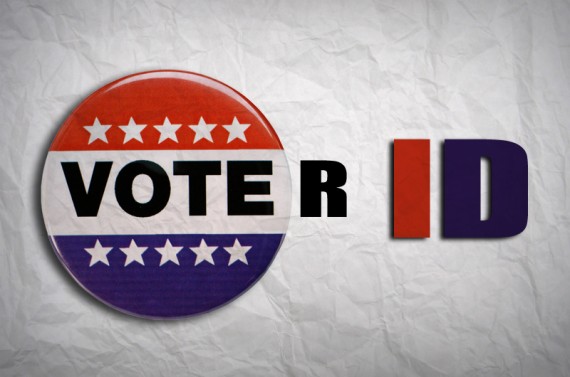

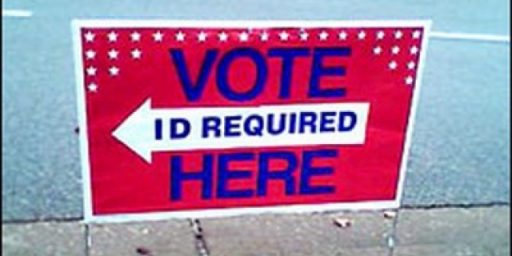
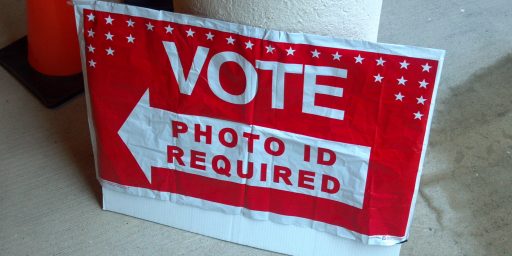
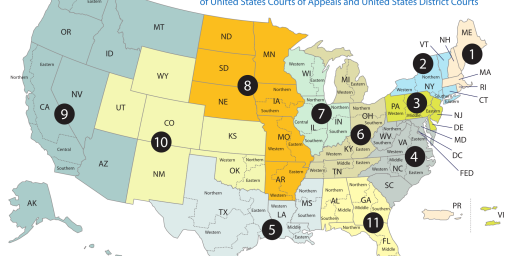
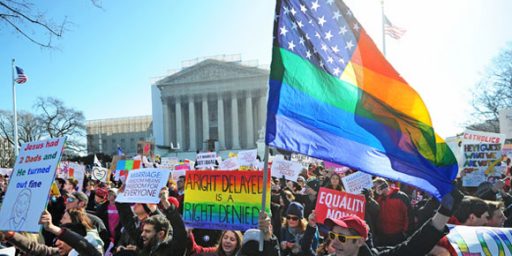
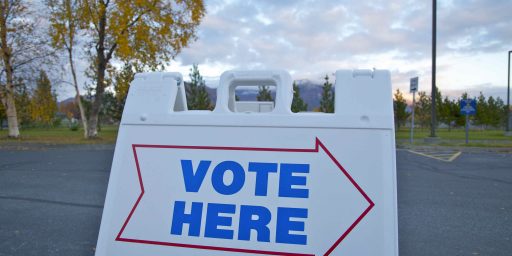
Why would they do that? They’re not actually worried about voter fraud, ya know.
Perhaps the fact that an overwhelming majority of americans favor requiring photo id is what legislators are considering when they pass laws like these.
This is what you get when you have the Federalist Society appointing a steady stream of right wing judges to the federal bench for decades. It’s a sweet scheme. You have conservative legislators pass voter supression laws, which make it impossible to vote out the conservative legislators who pass those laws or to vote in legislators who would change those laws. And all this is blessed by conservative judges who are appointed by conservative executives with the help of conservative legislators, who pass voter supression laws….
so we should wait for rampant voter fraud to kick in before we do anything about it?! the whole argument is weak, everyone needs an id to do anything these days- voting shouldn’t get a waiver.
w@bill: “so we should wait for rampant voter fraud to kick in before we do anything about it?! the whole argument is weak, everyone needs an id to do anything these days- voting shouldn’t get a waiver.”
If you are honestly scared of ‘rampant voter fraud’, you’ll (a) crack Deibold like a nut, and (b) shut down absentee balloting.
I can’t locate it easily, but somebody posted a list of Wisconsin DMV office hours. Offices in ‘urban’ areas were set to the first Tuesday of the month.